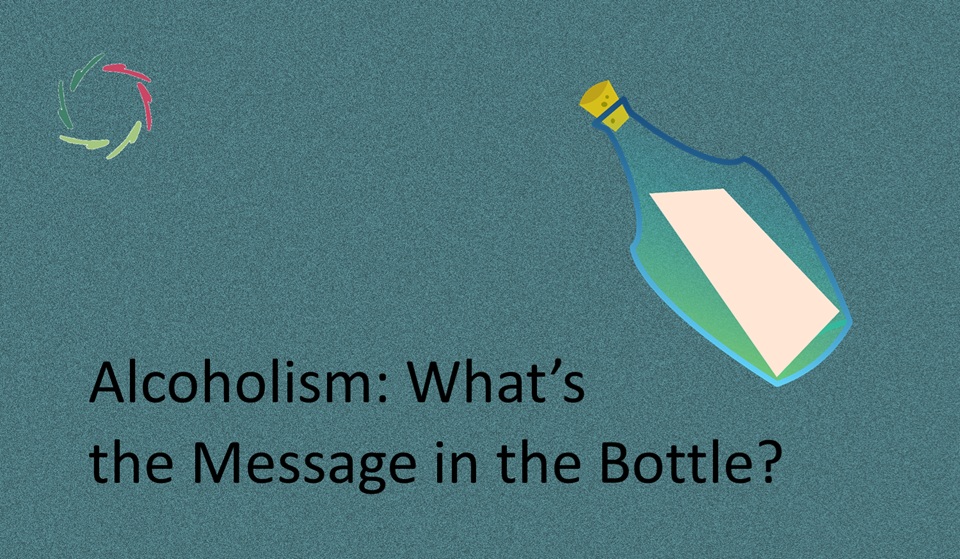Addiction – Emptiness – Nirvana

Emptiness seems to be associated with addiction and Nirvana. ‘It’ is sought in both ― not coincidentally.
High and low
Addiction can be seen as an attempt to fill a deep-inside void, an Inner Emptiness that seems unbearable to experience. The addict tries to fill this void with occasional highs. In some way, he also fills it with the in-between quest for the next high. The quest is also meaningful ― serving the goal of the high as well as the filling of the low.
Anything but meaninglessness.
Close to depression
In the concept of depression, one can see meaninglessness itself. Every symptom that is being described as part of depression can be seen as a direct result of a profound lack of meaning. [see: “The Dark Side of Depression”]
Depression as a whole can be seen as a loss of connection to the ‘deeper self’ ― my term for the dynamic set of deeper mental-neuronal patterns that together form the basis of what we feel to be the source of ‘meaning.’ In translation, one may call this ‘soul’ as in the soul of music, or in a more religious sense. [see: “Depression: in need of the lost soul”]
Nirvana?
In [see: “Nirvana and Depression: Same Emptiness?”], I made an association between depressive and ‘enlightened’ emptiness. In addiction, we also encounter this huge ‘void to be filled.’ Can this eventually be about the same?
The ‘high of the addicted’ fits in the scheme, although in a paradoxical way. Here, we see a combination of running away from emptiness and right into Emptiness.
Or, one can say, from complete meaninglessness to complete meaningfulness. [see: “Addiction: in Search of Deeper Meaning”]
I happen to know first-hand what I’m talking about. [see: “Nightlife at the Zendo”]
Coincidentia oppositorum
C.G.Jung (1875-1961), a Swiss psychiatrist, has written extensively about this.
The ‘unity of opposites’ is an age-old idea with, in alchemist parlance, ’a thousand names.’ It is an intuition with which humanity has been trying to grapple for very long. It’s about many opposites, but, I guess, meaning is an excellent instance.
AURELIS
In ‘AURELIS tradition,’ it’s head-on about subconceptual processing. [see: “About ‘Subconceptual’”]
Subconceptual processing is entirely meaningless if one searches for conceptual meaning.
It can be entirely meaningful if one doesn’t let the former search stand in the way.
Early-life trauma
Many addicts have a history of trauma, most frequently in or from early life. In my view, the working mechanism here lies in inner dissociation engendered by the trauma in the broadest sense. [see: “Trauma Wisdom”] The trauma’s energy can flow in different ways. It can lead to wisdom or a profound loss of contact with inner meaningfulness. [see: “Inner Friend or Foe?”]
One can feel in the latter a profound yearning, a call from depth. Otherwise said, this call is depth itself, but it isn’t heard as such. There’s a considerable layer between.
With the use of the drug, for instance, the layer-between is taken away.
Since this is artificial, it happens very temporarily in its immediacy as well as its effect. The addict usually doesn’t grow from the experience ― a big difference.
Yet, crucially, it is the same emptiness, highly addictive because it’s a quick-fix, quickly lost Nirvana.
Unfortunately, our brains aren’t made for the repeated use of such a highly energetic mental hammer. With present-day visualization means (fMRI etc.), we see changes in the chronic addict’s brain that make the addiction into what can be rightfully called a disease. The mind-brain gets physically wounded.
Even so, I think that every addict can learn from seeing his addiction as something that – in most profound depth – remains worthy of being treated positively. [see: “Six Steps Every Drug Addict Could Take”]
Easy? Not at all!


